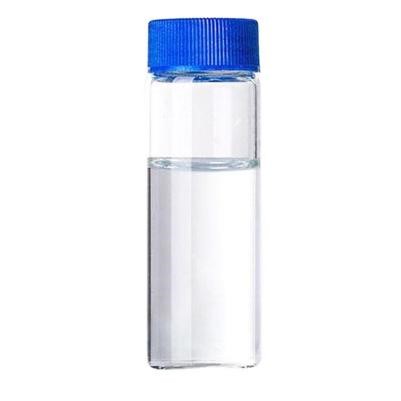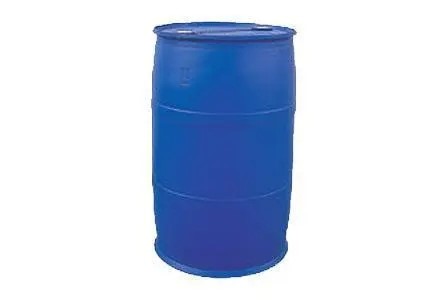Polyisobutylene (PIB) is a colorless, tasteless, non-toxic thick or semi-solid substance, heat resistance, oxygen resistance, ozone resistance, weather resistance, ultraviolet resistance, acid and alkali resistance and other chemicals good performance. Polyisobutylene is a colorless, odorless, non-toxic isobutylene homopolymer. Due to the different preparation methods and technological conditions, the molecular Chemicalbook amount of polyisobutylene varies in a wide range. Most of the molecular weight of the product reaches more than 10,000 to 200,000 will be converted from a thick liquid to a semi-solid, and then transition to a rubber-like elastomer. Polyisobutylene is resistant to acid, alkali, salt, water, ozone and aging, and has excellent air tightness and electrical insulation.
 Chemical properties: colorless to light yellow viscous liquid or elastic rubbery semisolid (low molecular weight is soft gelatinous, high molecular weight is ductile and elastic). All odorless, odorless or slightly odorous odor. The average molecular weight is 200,000 ~ 87 million. Soluble in benzene and diisobutyl Chemicalbook, can be miscible with polyvinyl acetate, wax, etc., insoluble in water, alcohol and other polar solvents. It can make gum sugar have excellent softness at low temperature, and has certain plasticity at high temperature to make up for the shortcomings of polyvinyl acetate when it is cold, hot weather and excessive softening when it meets mouth temperature.
Chemical properties: colorless to light yellow viscous liquid or elastic rubbery semisolid (low molecular weight is soft gelatinous, high molecular weight is ductile and elastic). All odorless, odorless or slightly odorous odor. The average molecular weight is 200,000 ~ 87 million. Soluble in benzene and diisobutyl Chemicalbook, can be miscible with polyvinyl acetate, wax, etc., insoluble in water, alcohol and other polar solvents. It can make gum sugar have excellent softness at low temperature, and has certain plasticity at high temperature to make up for the shortcomings of polyvinyl acetate when it is cold, hot weather and excessive softening when it meets mouth temperature.
Applications: PIB is known for its excellent sealing and adhesive properties, which are often used in adhesives, coatings, and sealants. PIB’s rubber-like properties make it an excellent choice for sealing and bonding applications, as it helps to provide a strong and durable bond in multiple settings. In addition to its practical usage, PIB is commonly used in cosmetics and personal care items due to its excellent solubility properties. The substance is often combined with other ingredients to create products with a unique texture and feel.
PIB has a wide range of applications in the food industry as well. The substance is commonly used as a thickener, stabilizer, and emulsifier in processed foods. PIB can also help to improve the texture and consistency of products such as ice cream, chewing gum, and baked goods. The versatility of PIB makes it an essential ingredient for manufacturers in the food industry.
PIB is also widely used in the medical industry. The substance’s non-toxic properties make it ideal for use in medical applications. The substance is often used as a stabilizer in vaccines, as well as an ingredient in many medications. PIB’s hydrophobic nature helps it to adhere to the skin, making it useful in the production of medical adhesives.
Characteristics: Polyisobutylene has the chemical properties of saturated hydrocarbon compounds, and the side chain methyl group is tightly symmetrical distribution, which is a unique polymer. The aggregation state and properties of polyisobutylene depend on its molecular weight and molecular weight distribution. When the viscosity average molecular weight is in the range of 70000~90000, polyisobutylene transforms from a turning liquid to an elastic solid. Generally, according to the size of the molecular weight of polyisobutylene is divided into the following series: low molecular weight polyisobutylene (number average molecular weight =200-10000); Medium molecular weight polyisobutylene (number average molecular weight = 20000-45,000); High molecular weight polyisobutylene (number average molecular weight = 75,000-600,000); Ultra high molecular weight polyisobutylene (number of average molecular weight greater than 760000).
1. Air tightness
One of the outstanding characteristics of polyisobutylene is its excellent air tightness. Due to the presence of two substituted methyl groups, the molecular chain movement is slow and the free volume is small. This results in a low diffusion coefficient and gas permeability.
2. Solubility
Polyisobutylene is soluble in aliphatic hydrocarbon, aromatic hydrocarbon, gasoline, naphthene, mineral oil, chlorinated hydrocarbon and carbon monosulfide. Partially dissolved in higher alcohols and cheeses, or swollen in alcohols, ethers, monomers, ketones and other solvents and animal and vegetable oils, the degree of swelling increases with the increase of solvent carbon chain length; Insoluble in lower alcohols (such as methanol, ethanol, isopropyl alcohol, ethylene glycol and coethylene glycol), ketones (such as acetone, methyl ethyl ketone) and glacial acetic acid.
3. Chemical resistance
Polyisobutylene is resistant to acid and alkali. Such as ammonia, hydrochloric acid, 60% hydrofluoric acid, lead acetate aqueous solution, 85% phosphoric acid, 40% sodium hydroxide, saturated salt water, 800} sulfuric acid, 38% sulfuric acid +14% nitric acid erosion, However, it cannot resist the erosion of strong oxidants, hot weak oxidants (such as 60% potassium permanganate), some hot concentrated organic acids (such as 373K acetic acid) and halogens (fluorine, chlorine, desert).
Packing :180KG drum
Storage: Store in a cool, ventilated, dry place with sun protection during transportation.
In conclusion, PIB is a valuable substance with a multitude of applications in various industries. Its excellent sealing and adhesive properties, as well as its solubility and versatility, make it ideal for applications within the cosmetics, personal care, food, and medical industries. As a leading supplier of PIB, we are dedicated to providing our customers with the highest quality products and services to meet their industry needs.
Post time: Jun-19-2023







